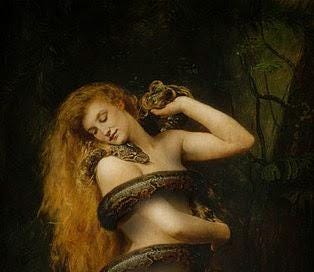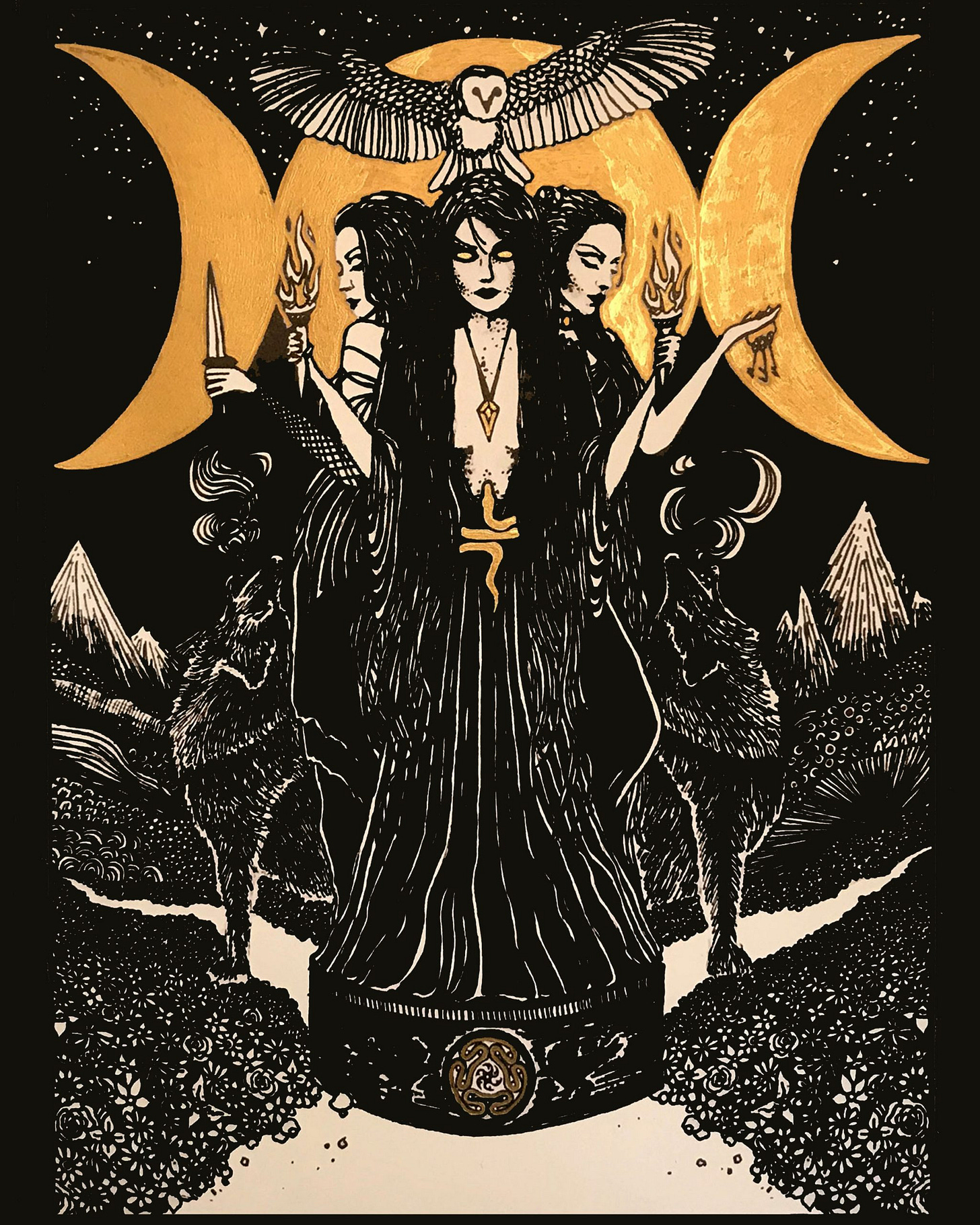Lilith represents a strong and independent feminine force, often considered taboo or shunned by patriarchal society. The Lilith archetype can bring out the darker, more primal aspects of one's personality, but also symbolize a rejection of societal norms and a desire for freedom and self-expression. In this way, Lilith can challenge and disrupt the status quo, acting as a Trickster archetype, disrupting and subverting established systems of power and control.
Lilith can be seen as a representation of the primal aspect of femininity, as she is often connected to the wild woman in mythology and represents the untamed, instinctual, and free-spirited aspects of the feminine. In Jungian psychology, she can symbolize the unconscious aspects of the anima or feminine psyche that are unrepressed and in touch with instinctual desires and drives.
Another important deity connected to the untamed, instinctual, and free-spirited aspects of the feminine is Hecate. Hecate was often depicted as a triple deity, with three faces or three bodies, representing her role as a goddess of the three realms: earth, sea, and sky. She was also associated with the phases of the moon, and was sometimes referred to as "the goddess of the three ways," a reference to the crossroads where she was often worshipped.
In Greek mythology, Hecate was believed to have the power to grant or withhold fertility, to protect women in childbirth, and to bestow wealth and success upon those who worshipped her. She was also associated with necromancy and the dead, and was sometimes called upon to help the spirits of the deceased find their way to the underworld. Hecate was worshipped in ancient Greece and Rome, and her cult was also popular in other parts of the ancient world, including Egypt and Anatolia.
As an archetype of the Divine Feminine, Hecate embodies the feminine aspects of the divine, including love, compassion, creativity, and transformation. She is a powerful and transformative figure, representing the ability to bring about change and renewal. Hecate also embodies aspects of the archetype of the Vestal Virgin, thus remaining independent and self-sufficient in her power. She represents the wisdom and purity that can come from embracing one's own power and remaining true to oneself. At the same time, Hecate is associated with sexuality, sensuality, and transformative power. As a goddess of magic and witchcraft, she represents the ability to harness and channel sexual energy and use it for transformative purposes.
In her association with the moon and the night, Hecate also embodies the archetype of the Dark Feminine, representing the shadow aspects of the psyche, such as fear, anger, and desire. By integrating these aspects of oneself, an individual can access their own power and transform themselves and the world around them.
In working with either the archetype of Hecate or Lilith, an individual can explore their own shadow aspects, integrate their own power, and navigate the crossroads of life with confidence and clarity. They can also tap into the transformative power of sexuality and sensuality, and use it to bring about positive change in themselves and the world. Overall, both Lilith and Hecate are powerful and transformative archetypes of the Divine Feminine, one that can help individuals to embrace their own power and transform their lives.






Enjoyed the reading and learning about Hecate.
Any pointers about working with her archetype? I appreciate any recommendation.